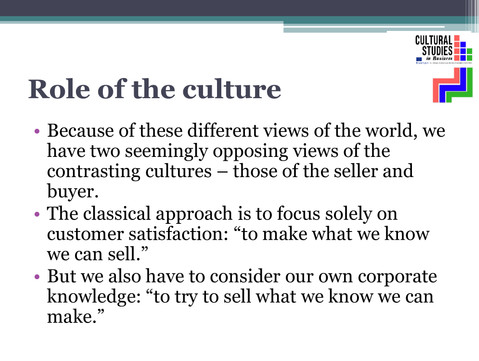The role of cultural differences in the management of organizations
- csbprojectitaly
- Jun 30, 2020
- 3 min read
Updated: Aug 31, 2020
Here below the abstract of the study and the presentation titled "The role of cultural differences in the management of organizations" by Marija Stojanova, Professor of Strategic Management and Operation Manager and Researcher in Human Resources, Business Economics and Business Administration at Euro College of Kumanovo (Republic of North Macedonia) in occasion of the Learning Mobility at UBI University in Covilha (Portugal) in November 2019 on behalf of "Cultural Studies in Business" project.
Abstract
Today we live in a dynamic environment that the business world wants from us a complete change of mindsets from the conventional wisdom. The globalization and international businesses often inquire to start thinking how to transform our organization into a new future. Goodstein and Burke (1994) describe change in terms of levels of change, strategies of change, and models and methods of change. But this is not so satisfactory if we do not calculate the cultural differences into the new strategies for our companies. In order to change the culture which is the current reality for most of us, we need to reconcile the real with the ideal. But the only way of moving towards this ideal is through mobilizing current realities. So, now the question is what we can do with the cultural differences to make our organizations more effective. Culture is a factor that cannot be quantified as financial conditions but the importance for the management of organizations can be more or less the same. What we can say is that the culture is very important for the future of any business. But in what way? We have different views that are important for the culture, those of the seller and the buyer. The classical approach is to focus solely on customer satisfaction: “to make and promote what we know we can sell to our customers.” But we also have to consider our own corporate knowledge: “to try to sell what we know we can make” as Wooliams and Trompenaars (2003) stated. So here we must mention two most common rules for success. The first rule is that the seller adapts to the buyer and the second that during each business relation we should be aware of the local traditions. Here we have two dilemmas. The first one is between the universal and the particular where according to many authors we should decide to serve our customers with global marketing tools or to go with local based marketing, more influenced by the local or national culture. And the second dilemma is what to offer to the customers, something that is in trend and usually accepted by the group or to go with some new concept of creating something new, unique and individual. Those dilemmas open another question of looking at the culture, looking on the people and their traditions. For those questions we should be aware of cultural differences and tradition while we promote and sell things or make business. There are so many different people in the world with different manners that want different approaches. Those are the things where we should focus our ideas before starting our business relations.
Written by Marija Stojanova, Professor of Strategic Management and Operation Manager and Researcher in Human Resources, Business Economics and Business Administration - Department of Business Administration at Euro College of Kumanovo (Republic of North Macedonia). Lecturer of the "CSB Pilot Course", core activity of the Erasmus Plus K203 Project "Cultural Studies in Business". Participant in the Learning Mobility C2 in Covilhã by UBI University - Portugal, (November 2019).
.jpg)
































































Comments